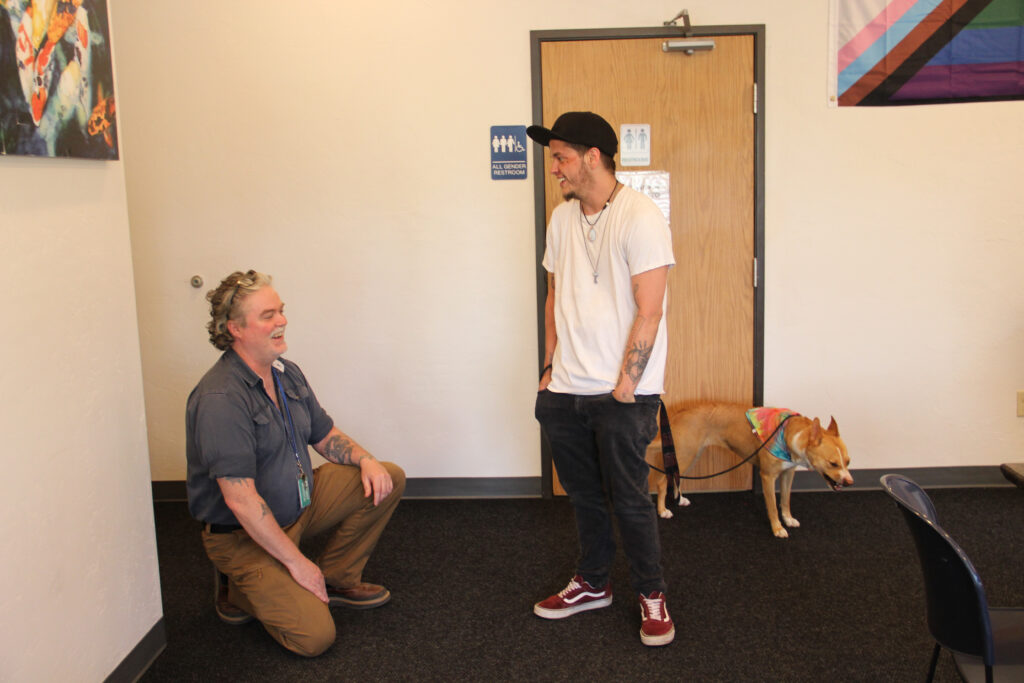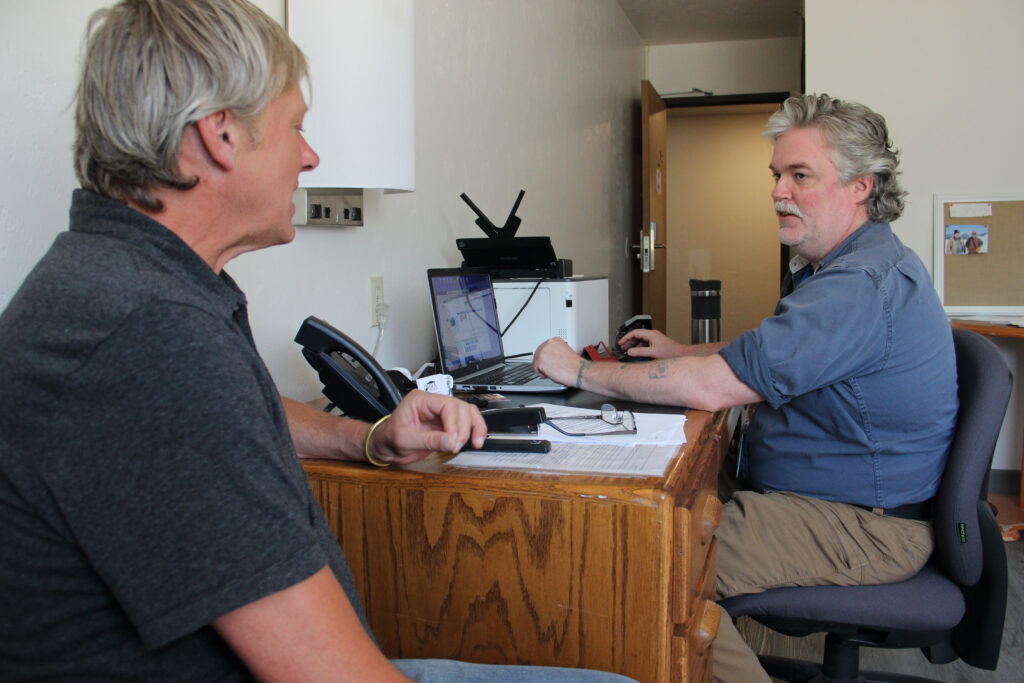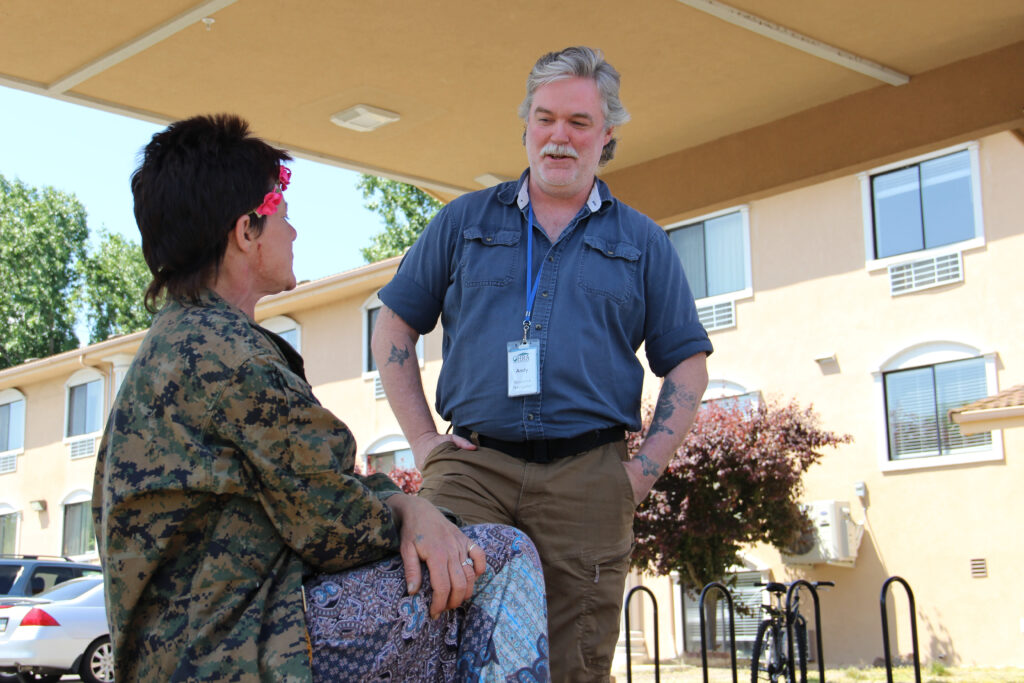Southern Oregon Homelessness Summit: Uniting to Address Housing Insecurity
Are you concerned about the escalating crisis of...



Andy came to OHRA in January 2023 as one of our newest Resource Navigators bringing with him a unique perspective to the work. Andy is a Navy veteran and spent 22 years serving the community as a member of the Jackson County Sheriff’s Office working in the jail. From his perspective, there is an overlapping population between guests at OHRA and people he encountered working in law enforcement. The difference he sees, and why he feels that his current work at OHRA is the most rewarding of his life, is the compassionate approach to helping people rather than punitive action of the justice system. In this article, Andy details his experience as a Navigator and the way that his path of service has narrowed and deepened.
What makes OHRA special? It’s in the very nature of the work we do. Each time a staff member meets with a guest, we are personalizing our service to meet their needs. We walk alongside them to connect them with the most appropriate resource that they are looking for. We get to connect with our guests in a deep and meaningful way. It’s impossible to not care about the outcome of their situation. There’s a saying that “familiarity breeds contempt.” At OHRA we are proving daily that familiarity breeds compassion.
Are we able to meet the needs of every individual we serve at OHRA? Unfortunately, the answer to that is no. There are limited resources, and challenges for the community we serve are ever increasing. In this job there are moments of heartbreak. Then there are the moments of joy: those frequent occasions when we can bring someone into the shelter, when their rent is paid, or when a new job starts. There is nothing more rewarding than seeing the direct results of our hard work and that of our guests. Regardless of our ability to meet a person’s physical or financial needs, every person gets their most fundamental human needs met—to be treated with dignity, to be appreciated, and to be seen. This is the baseline of every navigator/guest interaction.
I would be remiss if I didn’t mention OHRA’s work culture. It is the finest I’ve ever been a part of. We have supervisors who lead by example, stay connected, and remain approachable. My peers are supportive and we all believe in the work we’re doing. Something that really stands out is the relationship between navigators and shelter staff. Having staff in the shelter who are available to and familiar with the shelter guests is an invaluable resource in making sure we are meeting the needs of the guests.
Recently, one of the shelter staff spoke to me about a guest who was considering going back to the abusive relationship that initially brought her to the shelter. When I met with that guest, we were able to reach the conclusion that because she has a safe place to stay in our shelter, she didn’t need to rush into a decision. Another shelter guest recently popped into my office wanting to tell me that he started his new job. Before he came into the shelter, he was living in his car after losing his job from an injury. That same day, I met another shelter guest at court to support and advocate for her. Resolving her justice charges is the final barrier preventing her from moving into long-term, stable, and supportive housing. These are just a handful of examples of the work we are doing every day. – Andy
Andy’s reflections are indicative of the integrated services provided between the Resource Center and the Shelter— offering navigation services in conjunction with temporary emergency shelter. Guests have the opportunity to truly work on removing barriers to permanent or supportive housing. Andy is one of eight Resource Navigators on staff who work daily with shelter guests and guests of the Resource Center, connecting them to services, programs, or resources to assist them in making change in their lives. As Andy has seen firsthand in his time with law enforcement, many people who struggle with mental health, lack safe, affordable housing, or struggle with substance use disorder often end up justice-involved, which can limit their access to employment or housing—and the stability they so desperately need.
Are you concerned about the escalating crisis of...
In January 2023, Oregon Governor Tina Kotek...
At OHRA, we envision a community where everyone...